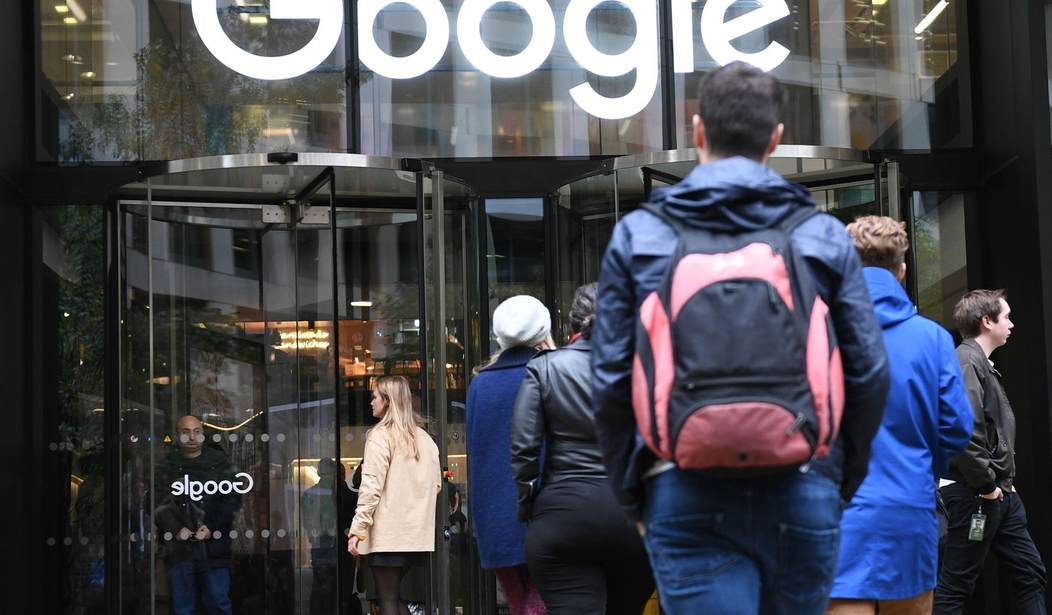On Wednesday, the attorneys general of 36 states and the District of Columbia filed an anti-trust lawsuit against Google. The bipartisan lawsuit echoes a similar case that Fortnite-maker Epic Games brought against the search giant last August, challenging Google’s surcharge on apps that use its Google Play Store.
The lawsuit brought Republican AGs like Sean Reyes (Utah), Herbert Slatery III (Tenn.), Mark Brnovich (Ariz.), and Doug Peterson (Neb.) together with Democratic AGs like Josh Stein (N.C.), Letitia James (N.Y.), Philip Weiser (Colo.), and Thomas J. Miller (Iowa), Politico reported.
The lawsuit alleges that Google’s plan for its pay-to-Play Store violates anti-trust laws, harming consumers in the states. Google has announced its plan to force all app developers who use the Google Play Store to pay a 30 percent commission on sales of digital goods or services, starting in September. Epic Games challenged a similar policy last August. Judge James Donato, the Obama appointee who will hear the states’ lawsuit, has scheduled a trial in the Epic lawsuit for April 2022.
The pay-to-Play Store is the default app store on Google’s Android phones, although Android users can also download apps from stores operated by companies like Amazon and Samsung, or even install them directly from other sources. Apple, by contrast, only allows iPhone users to download phones from Apple’s App Store.
Google has long required app developers to use its payment system for purchases made through the Play Store, but the company has only loosely enforced that rule. Last year, the company announced that it would enforce the rule in September 2021.
Companies like Netflix, Spotify, and Match Group, which bypassed the surcharge, complained, and Google sought to quell their unhappiness by lowering the commissions to 15 percent on the first $1 million in sales, mirroring Apple’s 2020 small business program. Developers of video, audio, and e-book services will also only have to pay 15 percent.
Google defended its commissions at a Senate hearing in April, claiming that others in the industry charge similar prices. The commissions also help fund developer tools and updates to the Android ecosystem, Google insisted.
“If a developer feels that the value proposition of Google Play is not adequate, they can distribute their apps in a number of other ways,” Wilson White, Google’s public policy lead for Android and Google Play, argued at the time.
Jessica Melugin, director of the Center for Technology at the free-market Competitive Enterprise Institute (CEI), found the case rather wanting.
“The state’s case against Google is about app developers, who would likely not have had the mass distribution nor the profits without the extensive distribution advantage of the Play Store, wanting to change the rules mid-stream,” Melugin argued. “Not only are there already other alternatives for down loading these apps on Android devices, but consumers benefit from the security, privacy and convenience of centralized payment systems. U.S. antitrust law should protect consumers, not renegotiate private business arrangements via government meddling.”
The 38-state lawsuit comes just nine days after the anti-trust crusade suffered its first major defeat when a federal judge in Wisconsin dismissed the Federal Trade Commission’s anti-trust suit against Facebook, ruling that the FTC hadn’t offered enough evidence to prove that the world’s largest social network is a monopoly.
Recommended: Google Under Fire: 50 State AGs Launch Antitrust Investigation
Google also faces other lawsuits. In October 2020, the Justice Department and 14 states sued Google over the company’s efforts to dominate the mobile search market. Thirty-eight states and territories also filed a search-related lawsuit in December 2020. Fifteen states and territories also sued the company regarding its advertising technology.
While Big Tech companies like Google may abuse their awesome power, some of these anti-trust cases may prove less than compelling. It remains to be seen whether or not the states have a good case here.









Join the conversation as a VIP Member